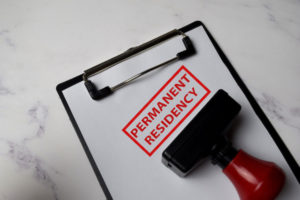Worried that after Brexit they will lose their freedom to travel across Europe and their right to live in any European country, many Britons are now looking for a second European passport. For most British people, the idea of acquiring a second passport had never crossed their minds before…
For most British people, the idea of acquiring a second passport had never crossed their minds. There was a good reason for it: they were the proud owners of one of the most prestigious passports in the world. However, since the Brexit vote, the mood has changed and the long revered British passport lost a bit of its appeal in the eyes of the beholders. Worried that after Brexit they will lose their freedom to travel across Europe and their right to live in any European country, many Britons are now looking for a second European passport.
Last week, the Guardian newspaper bluntly titled the phenomenum: “Brexit vote: have you applied for a second passport?” And it’s not just conjectures; it’s based on the flood of applications for citizenship that has landed on the desk of the Naturalisation and Immigration Service of the Republic of Ireland.
According to figures recently released by the Ireland’s Department of Foreign Affairs, the number of UK citizens who apply for Irish passports is steadily rising. Comparing 2015 and 2016 by month, the increase in the number of applications was 9% in June and 106% in November.
Charlie Flanagan, the foreign minister, said last week that 2016 was “an exceptionally busy year for the passport service with a record number of passports issued” and added that the trend was likely to continue for the next few years. He also said nearly 65,000 Britons and 68,000 people from Northern Ireland applied for Irish passports in 2016. Data show that the most of these applications were made after the Brexit referendum.
Anyone born on the island of Ireland, or whose parents were, is automatically an Irish citizen qualifying for a passport. Anyone whose grandparents were born in Ireland is entitled to apply for an Irish passport. Anyone born on the island of Ireland before 1 January 2005 is entitled to be Irish citizenship. You can also get Irish citizenship through descent from Irish grandparents. For more information: Citizens Information
For those less fortunate Britons with no Irish or other close European ancestors but who can invest in real estate in Europe, there are programmes in Cyprus, Malta or Portugal that will lead to EU citizenship without requiring physical presence in any of those countries. The fastest route to EU citizenship is the Cyprus program that grants applicants investing €2m in real estate a Cypriot passport in 6 months. For more information: Cyprus Citizenship Program



